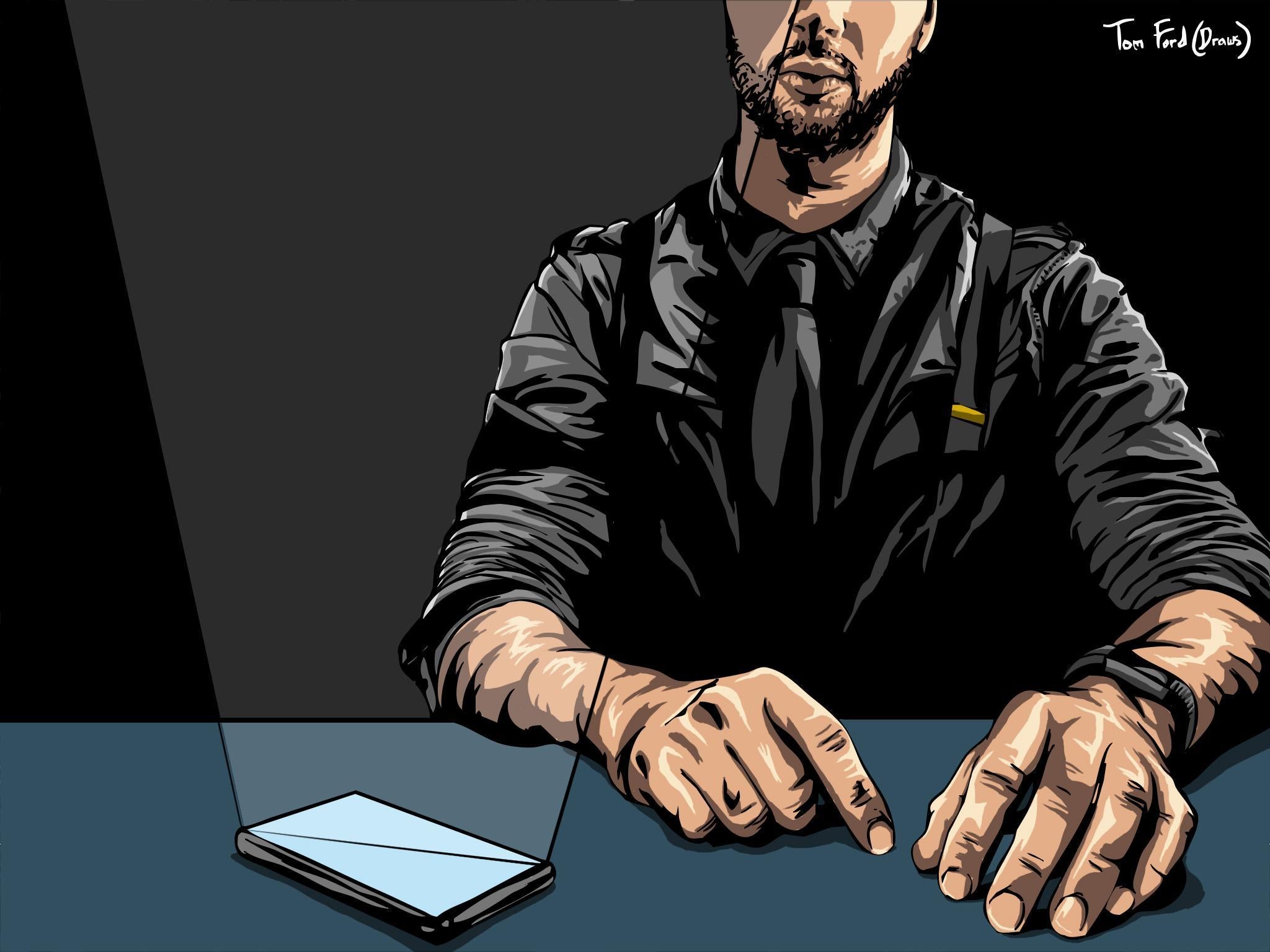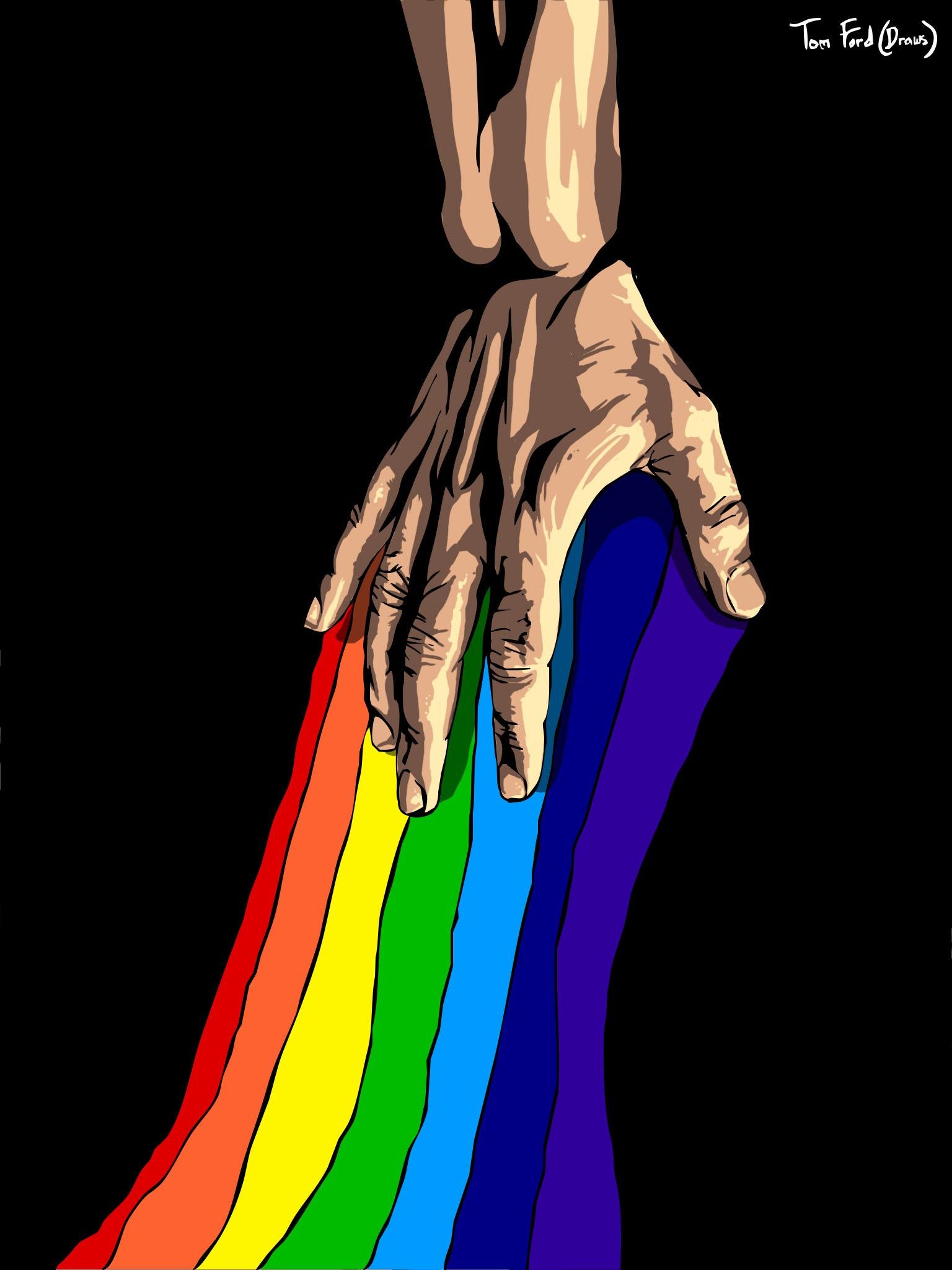Why asking 'how are you' isn't as easy as it seems
Continuing her series tackling socially unacceptable questions, Christine Manby asks when the right time is to put the stiff British upper lip aside and ask if someone really is ok


Even for the native speaker, the English language is full of pitfalls. There are hundreds of seemingly innocuous words and phrases that can mark you out as the wrong sort from the moment they pass your lips. Assuming, that is, that by “the wrong sort” we mean “the wrong sort” in the sense of Nancy Mitford’s “U” and “non-U”, with “U” standing for the upper classes and “non-U” representing the rest of us hopeless aspirants.
Aren’t we over that yet? It seems not. People all over the internet are judging the way you answer simple questions right now.
Like: “How do you do?” How do you answer that one? Let’s assume you just met someone for the first time and they’ve offered you that question with a handshake. Quick. What should you say in return? Pleased to meet you? Ravished to make your acquaintance? Very well, thank you? Wrong on all counts. The correct answer to “How do you do?” is, in fact, to say “How do you do?” right back. Confused? I know I was. But as Kate Fox writes in Watching the English: “‘How do you do?’ is not a real question about health or wellbeing.”
Likewise, if someone says: “Nice day, isn’t it?” when it’s pouring with rain, the very last thing you should do is disagree. The question is rhetorical. It’s etiquette straight out of My Fair Lady, in which Henry Higgins says of Liza Doolittle on her first appearance in the royal box: “I taught her how to speak properly. She has strict instructions as to her behaviour. She’s to keep to two subjects: the weather and everybody’s health. ‘Fine day’ and ‘how do you do?’, and not just let herself go on about things in general.” By which, of course, Higgins meant that the subject of “everybody’s health” should not actually touch on aches, pains or piles.
We say it when we’ve got a banging migraine. We say it when we’ve walked into the door on our way into the restaurant. We say it when we got home last night to discover our partner had left us, taking the dog
Which brings us to “How are you?” which is “How do you do’s” younger, funkier cousin. Variations include “How’s it going?”; “How you are doing?”; or even the one word version, “Alright?” Students of English as a foreign language are well versed in the right answer to this one. They’re cautioned from the start that “How are you?” in all its variants is another trick question that is not to be taken literally.
The person asking “How are you?” does not really want to know how you are. They don’t want to hear about your headache or your backache or the terrible journey you had to get into the office this morning. For heaven’s sake, don’t start talking about your marriage. According to any number of online English language schools, the only acceptable answer is: “I’m fine, thank you. How are you?” To which the correct answer is… Oh, you know the drill by now.
We ask people how they are all the time. It’s considered polite. So why isn’t it considered polite to give an honest answer? Is it just the British way? Is “I’m fine, thank you”, the ultimate verbal expression of the stiff upper lip? We say it when we’ve got a banging migraine. We say it when we’ve walked into the door on our way into the restaurant. We say it when we got home last night to discover our partner had left us, taking the dog (and we’re really going to miss that dog). Grit teeth. Smile. Everything will be OK. “I’m fine. Alright? How are you?”
It’s a long-treasured cliché that the British don’t talk about their feelings. With these rhetorical questions, it seems that not talking about feelings is actually entrenched in our language. But how is that working for us?
Over the decade from 2005 to 2015, worldwide rates of depression increased by a fifth. Over the same period, antidepressant prescriptions in the UK doubled. The UK has the highest rates of self-harm in Europe. Research by the NHS estimates that around 20 per cent of adult Brits have had suicidal thoughts. As Mentalhealth.org.uk reports on its website, “someone who insists that they’re ‘fine’ may actually be in a pretty bad way”.

It’s widely agreed that talking about the things that are worrying us can make them easier to handle. Regarding mental health, the NHS goes so far to say that in some situations talking treatments “may be the same or more effective than medication”. Yet we’re still busy telling each other we’re fine and changing the subject.
Recently, there’s been a concerted effort to tackle the stigma that surrounds mental health issues. The Duke and Duchess of Cambridge and The Duke of Sussex, Prince Harry, headed an initiative called Heads Together, hoping to “change the conversation”. Talking about the mental health challenges he himself faced after the death of his mother, Prince Harry told The Telegraph: “I know there is huge merit in talking about your issues and the only thing about keeping it quiet is that it’s only ever going to make it worse… What we are trying to do is normalise the conversation to the point where anyone can sit down and have a coffee and just go, ‘You know what, I’ve had a really shit day, can I just tell you about it?’”
I think that one reason we’re so eager to hold emotions at arm’s length is that we worry that if a friend or relative actually expresses their painful emotions, we won’t be able to fix them
But how do you start the conversation when you’re worried about someone else?
The mental health charity Mind suggests “lots of people can find it hard to open up and speak about how they’re feeling. Try to be open about depression and difficult emotions, so your friend or family member knows that it’s OK to talk about what they’re experiencing.” On Mind’s website, someone living with depression explains how easy making the effort to connect can be: “Just a simple call or text asking me how I am helps. I don’t want sympathy, just to know they are there if I need them.”
The Samaritans echoes the advice: “Often people want to talk, but wait until someone asks how they are. Try asking open questions, like ‘What happened about...’, ‘Tell me about...’, ‘How do you feel about...’”
I think that one reason we’re so eager to hold emotions at arm’s length, with our courtly formulaic answers to what might otherwise be serious questions about wellbeing, is that we worry that if a friend or relative actually expresses their painful emotions, we won’t be able to fix them. But you don’t have to offer solutions – in fact, it’s probably best not to – just discretion and a friendly ear. It’s about creating the space for a conversation without fear of judgement. Not talking about our emotions and the things that are getting us down should be as old fashioned as Nancy Mitford’s concept of “U” and “non-U”.
This year’s World Mental Health Day takes place on 10 October. To mark it, you might ask someone you love how they are in a way that transcends the usual small talk. Do it face-to-face, on the phone, or in a private message on social media, and assure them you’re ready to hear an honest answer. If the honest answer is “I’m fine, thanks. How are you?” then brilliant. But if it isn’t, I promise you’ll still be glad you asked. With the truth comes the possibility of a proper connection and with a proper connection, we’re one step closer to being “alright” for real.
Christine Manby has written numerous novels including ‘The Worst Case Scenario Cookery Club’
Join our commenting forum
Join thought-provoking conversations, follow other Independent readers and see their replies
Comments
Bookmark popover
Removed from bookmarks